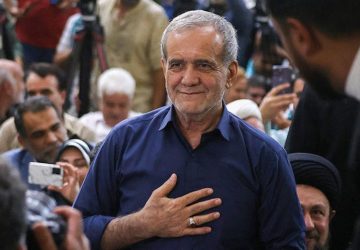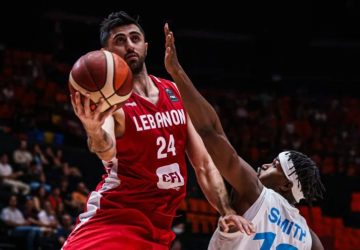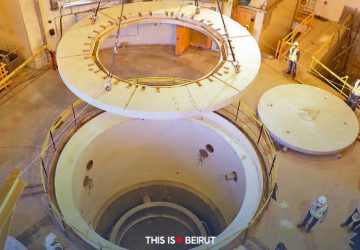Jamal Valizadeh, a refugee wrestler, overcame hardship to reach the Paris Olympics with the Refugee Olympic Team, driven by a decade-long dream of winning a medal.
Sixteen hours of barely paid daily work in Turkey, swimming part of the Mediterranean, and ten years after all that ordeal, the Paris Olympics: for refugee wrestler Jamal Valizadeh, a long-discarded dream will come true in July.
In a university training center in Saarbrücken (Germany), close to the French border, the thin-bearded athlete with dark glasses can’t hide his smile.
His dream of competing in the Olympic Games, which he had long had to give up after fleeing his country, is finally coming true, following his qualification for the Greco-Roman wrestling events as part of the Refugee Olympic Team (ROT).
At the age of 33, the then student and Greco-Roman wrestling champion had to leave his country, Iran, and admits that he has not had a similar career path to “other athletes.”
While he does not wish to expand on the reasons for his departure from Iran in his interview with AFP, Valizadeh recalls his difficult journey to France, deprived of contact with his loved ones, whom he only saw again this year, after ten years.
“Suffered enormously”
Shyly, he recalls that he “suffered enormously.” He soon arrived in Turkey. “I worked 16 hours a day, and after six months I only had 1,000 dollars. (Employers) gave me 300 dollars a month, and I had to buy food too at the same time.”
As he had no papers, “they abused me, didn’t respect me, spoke badly.” “For me it was really hard,” but he needed the money to continue his journey.
In the middle of winter, when he crossed the Mediterranean on a makeshift boat, “with two-meter waves,” the boat began to sink, so he was among those who abandoned it, giving priority to women and children, and swam hundreds of meters to the coast.
He arrived in France in 2016 and went first to Calais, “not to cross” but because he was told that “there were lots of people like me there, so it would be easier to get papers.” Valizadeh was then tested. He fought, without money, “just to save myself, to stay alive,” he says, moved.
Wrestling is a family affair: as a teenager, he was the only boy in the family, among his 34 other cousins, to practice gymnastics and handball, but not wrestling. Although he wrestled with them every evening, it was only later that he tried his hand at training… and impressed his coach by “beating the regional champion.”
The medal, at all costs
Valizadeh won the title of Iranian champion in the under-55 kilos category for three consecutive years, until 2013. But when he fled the country, where he was under threat, “I lost the hope of fighting internationally,” he asserts.
However, after passing through Paris, Calais, Le Mans and Angers, where he was granted political refugee status, Valizadeh found the hope he had gradually lost in the Moselle commune of Ogy-Montoy-Flanville, near Metz. “The mayor is a great help to me,” he points out, as the mayor himself is involved in the wrestling world.
He is continuing his studies in Metz, “which fills (his) plate” in the absence of other financial support. In addition to his minimum 24 hours of weekly training and his courses to validate his Master 1 in computer science at the University of Lorraine, he has also had to work in a supermarket to save money.
“Proud” to have qualified for the Paris Games along with 35 other refugee athletes, he nevertheless says that “there’s still one little thing left to finish the job: get a medal. For me, that’s the only thing left to do, absolutely.”
Marine Ledoux, with AFP





